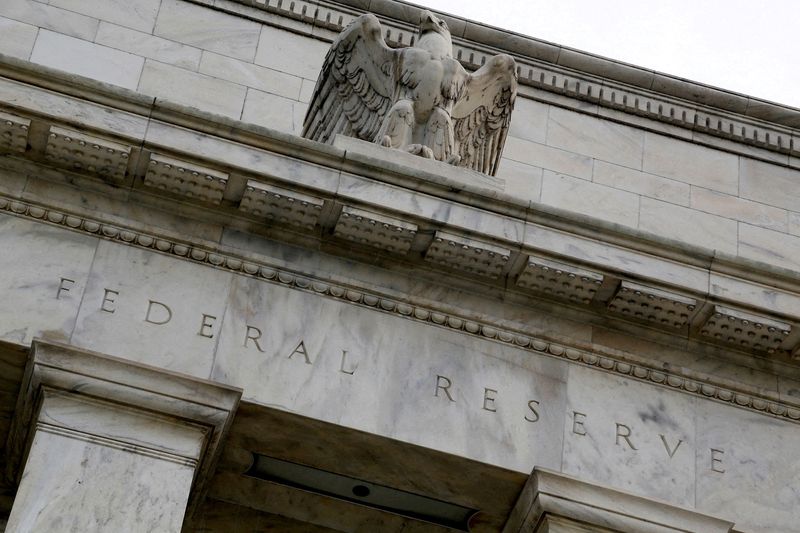By Francesco Canepa
FRANKFURT (Reuters) - The world's top central bankers are beginning to fear that an already weak global economy will stall if they keep pressing on the brakes, unnerved by plunging commodity prices, turmoil in emerging markets and potential flashpoints at home.
Central bankers in the euro zone, United States, Canada and Australia have all been hinting that the bigger part of their series of aggressive rate hikes may be behind them even though inflation remains high.
This has fuelled market speculation that central banks may be heading for a "pivot", market parlance for a change in direction towards smaller rate hikes that would lower inflation without wreaking havoc in the economy and markets.
The main driver of that change is a darker outlook for the economy, with the euro zone now firmly in recession and the rest of the world also struggling to varying degrees.
This is helping drive down the price of raw materials, which was a key driver of inflation since Russia's invasion of Ukraine.
In the most glaring example, natural gas has fallen by 90% in Europe as a feared shortage morphed into a supply glut that existing infrastructure is struggling to digest.
Finally, there are fears of new bouts of the kind of financial instability seen in Britain, where pension funds almost went under as a result of soaring long-term yields, and emerging markets in recent weeks.
"Over the last two weeks, several G10 Central Banks came across as ready-to-pivot," Alfonso Peccatiello, author of the Macro Compass financial newsletter, said.
"Why such a sudden change of heart? Because all these jurisdictions have something in common: inherent fragilities."
He singled out high mortgage debt in Canada and public debt in southern Europe, which can't count on a bailout from across the Alps due to the euro zone's lack of a common backstop.
Australia is also grappling with falling property prices, losses for pension funds and falling demand for its commodities.
Even the U.S. economy, until recently strong to the point of overheating, is showing signs of fragility and its housing market is cooling.
STUBBORNLY HIGH
But stubbornly high inflation is making central bankers' job incredibly tricky. Prices have risen faster than expected in Germany, France and Italy this month, data showed on Friday.
While there is nothing central bankers can do about present inflation rates, the mere optics of runaway prices made a "pivot" more difficult to justify.
This requires an extraordinary balancing act by central bankers: persuading the market that they are serious about bringing down inflation without choking the economy.
"The Fed needs to open a path towards smaller interest rate hikes without sounding too dovish," Christian Scherrmann, U.S. economist at DWS, said.
The European Central Bank tried that on Thursday, when it said it planned to increase rates "further" but it had already made "substantial progress" in withdrawing fuel from the economy.
The change of tone was minimal but it was enough for investors to start pricing in smaller hikes further down the road.
Traders in euro zone money markets brought down their expectations of where they see the ECB's peak rate to 2.6% on Thursday from 3% only weeks ago, although that rate rebounded on Friday after the inflation data.
"After yesterday's jumbo rate hike, the December meeting could indeed deliver a dovish pivot," Carsten Brzeski, an economist at ING, said.
Earlier in the week the Bank of Canada surprised the markets with a smaller-than-expected rate increase, mirroring a similar move by the Reserve Bank of Australia. Some analysts also see the risk of a smaller hike by the Bank of England next week.
Most importantly, the Federal Reserve, which governs the world's reserve currency and sets the tempo for global financial markets, has started a debate over how much higher it can safely push borrowing costs and how and when to slow the pace of future increases.
While a 75-basis point hike was seen as a certainty next week, investors were now positioning for a more cautious Fed going forward.
"It is inevitable that the Fed has to pause soon," Chris Iggo of the Axa IM Investment Institute, said.
